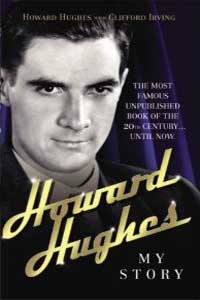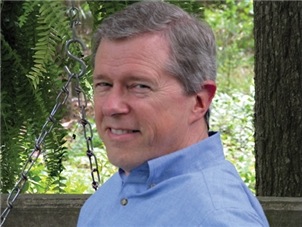Sunday, March 7: The A.D.D. Detective
FACT, FICTION, FAKERY I
by Leigh Lundin
The world needs another literary scandal.
 Last Train to Hiroshima
Last Train to Hiroshima
Charles Pellegrino
Questions arose last week confronting the most recent book by Charles Pellegrino, the noted author who combines science and archaeology. The purported account of WW-II veteran Joseph Fuoco the day before he died has been challenged by the 509th Composite Group, the men who took part in the bombing of Hiroshima, men who called Fuoco an imposter. Pellegrino says he was duped, but the factuality of two other characters have been called into question– they may not have existed at all.
It’s possible the vast majority, 95% or so, of the book may be accurate. However, the disputed 5% has irretrievably ruined the rest of the book and the publisher is pulling it from the market.
Shady accounts may be the least of the author’s worries. Earlier concerns about Dr. Pellegrino’s degree resurfaced and his alma mater now says they never issued Pellegrino a PhD. No longer are questions about errors, but something more serious– an author’s integrity.
As I argued key points in my head, searching for reasonable explanations, I came across James Cameron fan and critic David Brennan, who doesn’t mince words. He savages Pellegrino and the man’s reputation. Pellegrino responded on Amazon.
This will play out in the weeks to come. I want Mr. Brennan to be wrong, but I have a niggling fear he isn’t.
 Howard Hughes: The Autobiography
Howard Hughes: The Autobiography
Clifford Irving
When I read about the falsified autobiography of Howard Hughes, I wavered between amusement and bemusement. I marveled at the audacity of Clifford Irving‘s and Richard Suskind‘s plan, but I also wondered how they hoped to get away with it. Three quarters of a million dollars is a hefty motive, but someone had to know Hughes wasn’t jetting around the world meeting Irving in oddball places.
As a newly minted and sometimes self-surprised writer, I’m no longer amused but offended. Gifted writers who have an opportunity to make the world a better place cheapen it by cheating. They besmirch the reputations of all of us.
In a bubble of irony, Irving castigated the 2007 Richard Gere film about the experience, The Hoax, as "a hoax about a hoax." He argued the film added events and scenes that did not occur in real life and distorted portrayals of himself, Suskind and Edith Irving as wrongfully inaccurate.
He should know.
 The Hitler Diaries
The Hitler Diaries
Gerd Heidemann
A decade after the Howard Hughes debacle, Konrad Kujua, a forger specializing in duping collectors of Nazi memorabilia, managed to fool British Hitlerian expert Hugh Trevor-Roper with 62 volumes purported to be Hitler’s personal diaries. Stern Magazine journalist Gerd Heidemann claimed Kujua also fooled him, but the courts didn’t believe him.
Like The Hoax, the story became the subject of filmmakers resulting in a mini-series, Selling Hitler. The case had it’s own twist. In 2002, records from East Germany revealed Heidemann worked for the East German secret police, the notorious Stasi.
The Playboy Effect
Whenever a politician or evangelist gets caught in an affair, he’s embarrassed, usually forced to resign or impeached, and might go to jail. Meanwhile, his mistress feigns innocence while making lots of money taking off her clothes for Playboy, Penthouse, or Hustler. This despicable phenomenon doesn’t seem likely to change any time soon.
The three cases above share something similar. After whoring books turned out to be lies, the public clamored to buy them. Authors, publishers, and film makers actually made money after their phony works were exposed.
As with the others, demand for Last Train to Hiroshima has reached record levels; everyone wants to see what the fuss is about. But, even if the remaining 95% is factual, that falsified 5% has ruined a reputation in an already shaky business.
I hope I’m wrong, but I’m afraid I’m not.
Driving Miss Daisy crazy
 See the guy on the right? That’s my friend and colleague John Floyd. See the sly look on his face? It says he surreptitiously tied your shorts to the chair you’re sitting in. That’s his wicked sense of humor.
See the guy on the right? That’s my friend and colleague John Floyd. See the sly look on his face? It says he surreptitiously tied your shorts to the chair you’re sitting in. That’s his wicked sense of humor.
Besides his puns, readers know John as the Master of the Lists on Criminal Brief. Recently, one of John’s PUNishing lists appeared as a puzzler in MS Digital Daily. In this case, MS is S&M spelled backwards. You’ll understand when you work out his clues to towns and cities in Mississippi.




















Interesting column, Leigh. A friend in advertising once told me that TV commercials don’t have to be smart or well-done or even entirely factual, as long as they get your attention. (Consider those aired by used-car dealerships in just about every viewing area.) The same thing seems to apply to some nonfiction books: controversy and sensationalism are becoming more important than professionalism and truth.
Thanks, by the way, for your kind mention of my little wordplay quiz. As for my humor, I’ve heard there are medications for that kind of thing.
Pellegrino first came to my attention several years ago, when he claimed to have given Michael Crichton the premise for Jurassic Park, i.e., the cloning of dinosaurs from DNA extracted from amber-preserved parasitic insects. This claim has since been disputed, but I am not aware that it was ever disputed by Crichton.
I subsequently read a couple of Pellegrino’s books, one a science fiction novel co-written with a respected s.f. author, George Zebrowski, wherein he provides his blueprint for an interstellar space vehicle, and the other his take on the search for Atlantis. I was not particularly impressed with either, but three things did emerge: Pellegrino is obviously something of an egomaniac who desires to be fêted for his genius; he must wield considerable personal charm or nobody would pay any attention to him; and his expression of contempt for the scientific establishment in New Zealand was obviously personal rather than professional. All this before Last Train to Hiroshima.
This most recent scandal surprises me not in the least.
One thing is now absolutely certain: Pellegrino did not receive a Ph.D. as he claimed. The New York Times article can be found here.
from David Brennan:
Leigh:
Thanks for taking the time to read my blog and then to share the info with others.
There are a couple of small things that I would mention about your article. The first is your sentiment that the “shady accounts” in ‘Last Train’ might be the “least of the author’s worries”, because his phony PhD is, in your eyes, a bigger issue. Funnily, in my column, I used very similar wording….but to make the opposite point! In this column, I wrote, “[Pellegrino’s] lies about his academic credentials are the least of his offenses.”
Because, like I said, I think taht (a) lots of people fib about their education (although not so publicly and flamboyantly as Pellegrino) and also because (b) I really don’t believe that a college degree is a prerequisite for doing great scientific or historical research. (As an example, here’s an absolutely unbelievable tale of a truck driver from Wisconsin who has done incredible amounts or work and research on the atom bomb dropped on Hiroshima, Little Boy.)
The second problem? Well….the idea that 95% of the book might still be accurate, of course! Every day I’m getting one or two e-mails alleging new lies in it!
But thanks again.
I know Jack Nada about towns in Mississippi but I finally zapped into John’s quiz. Could only get one or two (Kansas guy here!) but when I scrolled down to the answer for “A town everybody loves” I not only groaned but groaned and spun around once in my chair (which can do that!). If there’s an award for puns, John deserves it!
I downloaded Last Train from Hiroshima from Audible after it had been pulled from Amazon and other bookstores. I started listening to it and something about it just didn’t seem quite right. I read a lot of non-fiction and this book just doesn’t read like non-fiction… plus for a book that takes place in Japan, there were A LOT of Christian references. So I started to read up on Charles Pellegrino and things started to make a bit more sense. It’s unfortunate that he (and his publisher) chose to market this book as a serious non-fiction title when clearly it is something else entirely. Thanks for sharing your thoughts on this.